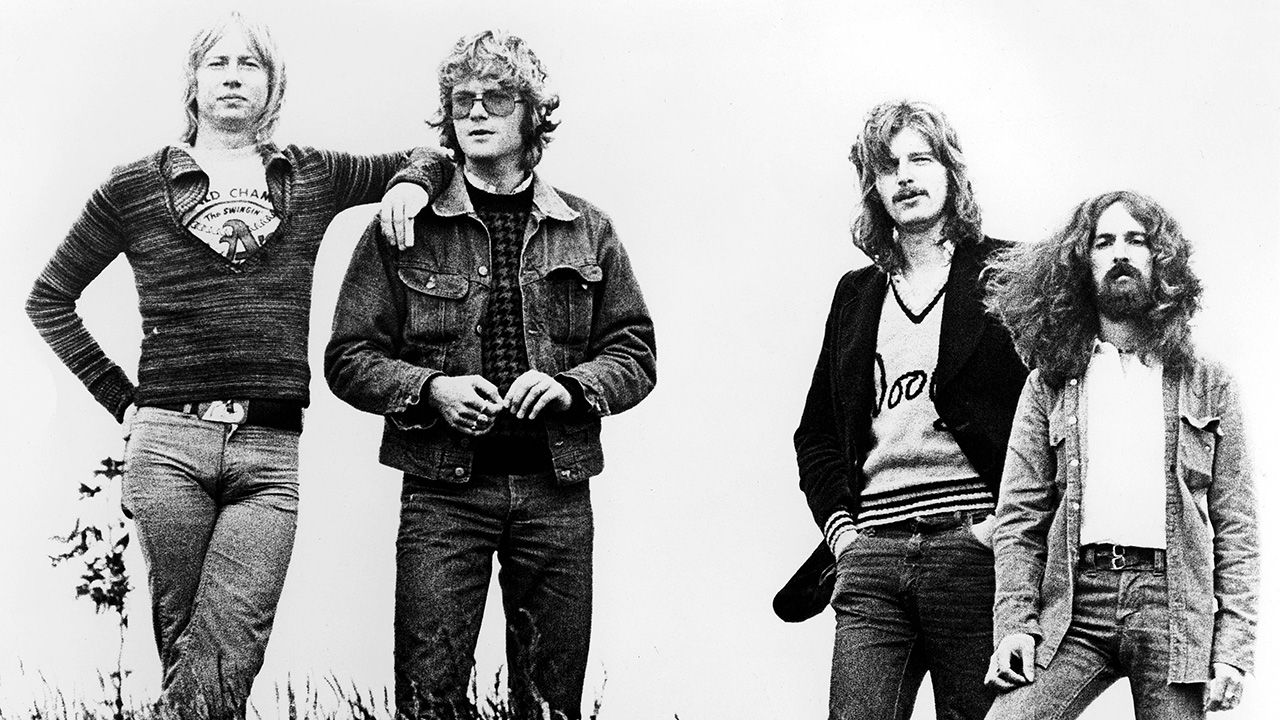“He wasn’t too pleased about that song. I can understand why… I wish we’d never done it”: By the time Barclay James Harvest upset The Moody Blues, they already had form
They didn’t mingle with fellow prog pioneers and didn’t clamour for stardom – but co-founder Les Holroyd argues they were highly successful where it mattered

In their original incarnation from 1966 until their split into two separate bands in 1998, Barclay James Harvest followed their own career trajectory. Snubbing the obvious route to success – and managing to upset several other artists as they went – they refused to embrace the idea of being part of a scene. In 2016 co-founder Les Holroyd told Prog that, despite all that, they’d achieved the form of success they’d been chasing.
Les Holroyd has his own theory as to why Barclay James Harvest never got the respect or recognition they deserved in the UK during the 70s.
“It seemed you had to be based in London and hang out with everyone else at places like The Speakeasy if you wanted to be noticed,” he tells Prog. But that wasn’t something we wanted to do. None of us wanted to be rock stars, so we never played those London games.”
The bassist, a founding member who left in 1998, looks back at the formative years as a time when he, John Lees, Mel Pritchard and Stuart ‘Woolly’ Wolstenholm were left to develop their own style without interference.
“Harvest, to whom we were signed at the time, really didn’t have much of an idea of what to expect from us,” Holroyd says. “The idea of progressive music was totally new, and we were right at the forefront of what was happening. So we were left to our own devices to write songs and create albums. We stayed in our farmhouse and just got on with the job of writing.”
He now feels the music business wasn’t prepared for the progressive explosion. “The labels were all used to dealing with commercial, mainstream artists. There were so few who appreciated how to handle a band like us.”
While a lot of musicians in the late 60s and early 70s had a strong bond, Barclay James Harvest were a little removed from any notion of a movement. In fact, Holroyd recalls, there was just one band with whom they had any rapport. “We got on really well with Argent. We did a lot of gigs with them. But we had very little to do with others like Yes, Genesis or any of the names getting attention at the time.
Sign up below to get the latest from Prog, plus exclusive special offers, direct to your inbox!
Robert John Godfrey wanted to become the fifth member of the band… that was never gonna happen
“Musically, we were often regarded as a cross between Genesis and Pink Floyd. Personally, I never quite got that comparison. We were also seen as being close soundwise to The Moody Blues – but a lot of that was down to the fact that both bands used the Mellotron.”
To some, Barclay James Harvest were regarded as being a second-rate version of the Moodies, which led to them recording the song Poor Man’s Moody Blues. That led to an uncomfortable encounter with the other band’s vocalist, Justin Hayward.
“I met Justin a long time after we’d done that song and we had a chat about it. He wasn’t too pleased about that song. I can understand why. For me, it was never funny or clever in the first place. John Lees wrote it, and I was uncomfortable recording the song. I wish we’d never done it.”
While Poor Man’s Moody Blues generated an undercurrent of controversy, it was the strained relationship with Robert John Godfrey that created the biggest waves of rancour over the decades. Godfrey was the band’s musical director on their first two albums, but the split was so acrimonious that The Enid founder still bristles over what he perceives as a lack of recognition from the band.
In particular, Godfrey believes he should have been given a songwriting credit on Mockingbird. Holroyd, though, offers little sympathy. “The business side of things should always be sorted before you go into the studio. It has to be made clear who gets credit for what. But Robert just assumed he would get it, and never did anything to confirm it. Sorry, but that was his problem.
We were equal partners. The four of us saw the band as a co-operative
“He wanted to become the fifth member of the band. But that was never gonna happen. We had nothing in common with him. He went to a private school and none of us did. He was trained at the Royal Academy Of Music and we didn’t have that type of musical education.”
Holroyd does confirm that, within the band, he was closer to one member than the others.“I was very friendly with Mel. But we’d known each other since the age of five. I suppose I wasn’t too close to John and Woolly. But on a musical level, that made no difference. We were equal partners. The four of us saw the band as a co-operative.”
Overall, Holroyd regards that period as being highly successful. “We followed our own musical journey. Being commercial never worried us. All that mattered was being true to our vision.”
Malcolm Dome had an illustrious and celebrated career which stretched back to working for Record Mirror magazine in the late 70s and Metal Fury in the early 80s before joining Kerrang! at its launch in 1981. His first book, Encyclopedia Metallica, published in 1981, may have been the inspiration for the name of a certain band formed that same year. Dome is also credited with inventing the term "thrash metal" while writing about the Anthrax song Metal Thrashing Mad in 1984. With the launch of Classic Rock magazine in 1998 he became involved with that title, sister magazine Metal Hammer, and was a contributor to Prog magazine since its inception in 2009. He died in 2021.


